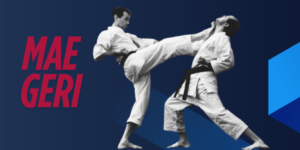Mixed martial arts (MMA) is a popular combat sport with arguably more fans than Taekwondo. But why is MMA not in the Olympics, while Taekwondo is?
In this post, I will discuss why MMA is not in the Olympics. I will discuss the prerequisite criteria for a game to be in the Olympics and why it’s a far cry from MMA.
The Olympic Selection Process of a New Games: A Brief Overview
Before discussing why MMA hasn’t made it into the Olympics, it’s essential to understand how the whole process works.
The International Olympic Committee (IOC) is responsible for deciding which sports will appear in the Olympic Games.
The Olympic officials follow a pretty detailed process to determine who gets in and who doesn’t.
How are sports selected for the Olympics?
The IOC looks at several factors when choosing sports for the Olympics, including:
- Popularity: The sport should have a global fan base. It’s not enough for a sport to be popular in just one or two countries; it must have a broad international following.
- Gender Equality: The IOC wants to balance men’s and women’s sports. For instance, if a game has only men’s events but not women’s, then it might not be selected for the Olympics.
- Governance: The sport needs to be governed by an international federation recognized by the IOC. This ensures that the sport is organized correctly at the global level.
- Tradition and History: Some sports are included because they have a long history related to the Olympics or because they reflect the values and traditions of the Games. Karate, for example, has a long history and will be included in the Olympics in 2020.
- Safety and Fair Play: The IOC wants to ensure that the sport is safe for the athletes and follows rules that guarantee fair competition.
Why is MMA not in the Olympics?

The answer to the question of Why is MMA not in the Olympics is that MMA’s
violent reputation.
Unlike sports like boxing or judo, which also involve physical contact but have long-established safety rules, MMA is often seen as more brutal.
This perception has made it hard for MMA to have the approval of the International Olympic Committee (IOC).
The violent reputation of MMA
MMA is marked for its intense physicality. Fighters use a wide range of techniques to push their opponents, including punches, kicks, grapples, and submissions.
While the sport has a clear set of rules (Unified rules of MMA), it’s still considered by some to be too violent for the Olympics.
Injuries, head trauma, and the potential for lasting damage have been central points of criticism.
Comparing MMA to other combat sports like boxing, judo, and Karate Taekowando helps highlight this issue.
While boxing and judo have their own risks, both sports have long histories in the Olympics, and their rules have evolved to increase safety for the athletes.
In boxing, for example, protective headgear and strict weight classes help reduce injury risk. Judo focuses on throws and submissions meant to control rather than harm an opponent.
Even though the amount of death in Boxing is much more higher than MMA, The commoun perception of MMA’s brutality has been prevailed.
The influence of traditional sports
Sports like gymnastics, swimming, Archare, and track and field have been part of the Olympics for decades, and they have strong, established governing bodies.
These sports already have significant influence within the IOC, and their traditions are deeply woven into the fabric of the Games.
When the IOC considers new sports, there’s a natural reluctance to upset the balance. Traditional sports tend to have an easier time gaining approval because they are seen as more “Olympic” in nature, with a focus on discipline, history, and technical skills.
MMA’s international governance challenge
MMA faces another challenge in the form of governance. The sport is governed by various organizations, with the UFC being the most prominent player.
However, while hugely popular, the UFC is a private organization rather than an international federation. For a sport to be considered for the Olympics, it must be governed by a recognized international federation overseeing its global operations.
MMA has some governing bodies, but they aren’t as unified or universally recognized as other Olympic sports, such as Karate, making it harder for the sport to gain legitimacy in the eyes of the IOC.
Potential for MMA in Future Olympics

While MMA’s path to the Olympics has been bumpy, it’s not entirely closed. The sport has been growing in popularity year after year, and with that growth comes the possibility of change. As the global landscape shifts, so too does the view of MMA—and with some effort, it could find its way into the Olympic Games in the future.
Is there hope for MMA in the Olympics?
The dream of seeing MMA in the Olympics isn’t as far-fetched as it may seem.
Firstly, Since 1993, The UFC, the leading MMA organization, has worked hard to legitimize the sport, implementing strict safety protocols, professional regulations, and even anti-doping measures.
This is a huge step toward making MMA more acceptable to organizations like the IOC, which is very particular about athletes’ safety.
On top of that, the sport’s worldwide appeal continues to grow.
Some influential figures have recently started working to make MMA an Olympic sport.
Peter Murray, CEO of the Professional Fighters League (PFL), Is working to make MMA an Olympic sport by 2028.
On Twitter, he expressed:
Dana White, CEO of UFC, Would Also Like to See MMA in the Olympics. In a Fans QndA session, he said:
Final Thoughts
So, why isn’t MMA in the Olympics yet?
It is a combination of factors, such as its violent reputation, the strict Olympic selection process, and the influence of traditional sports.
Although UFC and IMMAF have made significant improvements in player safety, anti-doping, and Brand value enhancement, they face challenges that make their inclusion in the Games difficult.
However, the future is not entirely bleak for MMA.
With continued efforts to improve governance, strengthen safety measures, and expand its global reach, MMA could one day earn a spot in the Olympics.
So, while MMA isn’t part of the Olympics yet, don’t count it out. Who knows what the future holds? Keep an eye on the sport – it may just be a matter of time before we see it in the Olympic Games!
You Might Also Like










